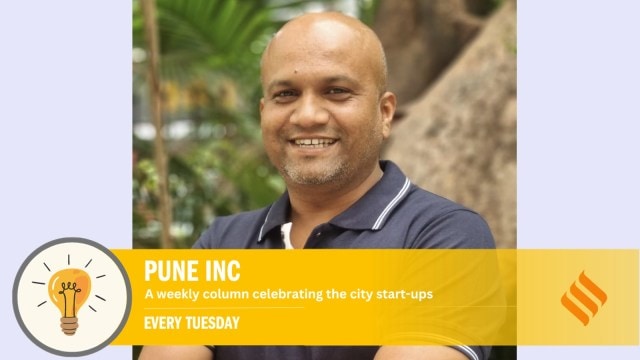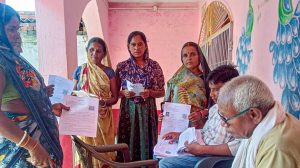Click here to join Express Pune WhatsApp channel and get a curated list of our stories
Pune Inc: An Amazon-like platform for fruits and vegetables to bring farmers close to consumers
Yogesh Kedari founded Mulyam Agronomics in 2023 and it will launch a full-fledged B2B marketplace in the next six months.
 Yogesh Kedari, a graduate in horticulture and an MBA in Agriculture Business Management. (Express Photo)
Yogesh Kedari, a graduate in horticulture and an MBA in Agriculture Business Management. (Express Photo)Yogesh Kedari, a graduate in horticulture and an MBA in Agriculture Business Management, had noticed the curiously long journey that farm produce takes from the field to consumer. “Imagine a farmer in Himachal Pradesh. He will send the produce to somebody sitting in the capital city, Shimla, who will transport it to Chandigarh, before the produce moves to Delhi and is sold by somebody else in the distribution market, like Bengaluru. From here, the produce will make its way to a small town kirana store. This is a very long value chain,” says Kedari.
After working in the space for 19 years, during which he became convinced that there was a disconnect between buyers and farmers because of multiple intermediaries, Kedari took the plunge in 2023 with a startup, Mulyam Agronomics , which is based in Pune-Chinchwad.
Mulyam’s solution was to directly buy all grades of fruits and vegetables from farmers and Farmer Producer Organisations (FPOs). The farmers, now dealing with a single entity that offers fair prices, get better returns on their produce, a market all over India and logistics and packaging assistance. The products are, then, delivered at a fast pace to wholesalers, retailers, exporters and other institutional buyers across the country, thus opening up distant markets for the products. It is the small, Tier-II and III wholesale buyers that Mulyam is especially targetting.
Platform of Value
At present, Mulyam has more of a transactional relationship with wholesalers and institutional buyers. In the next six months, it is going to launch a full-fledged B2B marketplace.
“We are trying to bring our capability to a level where we can scale. Once we operate on a scale of say one lakh or two lakh metric tons of fresh produce, we want to run the business as a platform that will have suppliers coming on the platform and buyers purchasing through us. This will enable farmers to sell their produce across the country in their brand and buyers across regions to access the produce,” says Kedari, emphasising that they want to create an FPO marketplace for market linkage.
The services will include value additions such as logistics and packaging platforms. “Once we introduce the platform, we will not take a trading cut but a service charge,” says Kedari. He says that buyers will get consistent supply, better quality and financing solutions. Farmers get a pan-India reach, help in procurement of packaging material, better logistics rates and prices across all the major and smaller markets in the country. “This will enable farmers to go beyond their current reach of 50-100 km radius that he sells. The best thing is that FPOs can create their brand and showcase across the country in wholesale markets through us,” says Kedari.
Click here to join Express Pune WhatsApp channel and get a curated list of our stories








